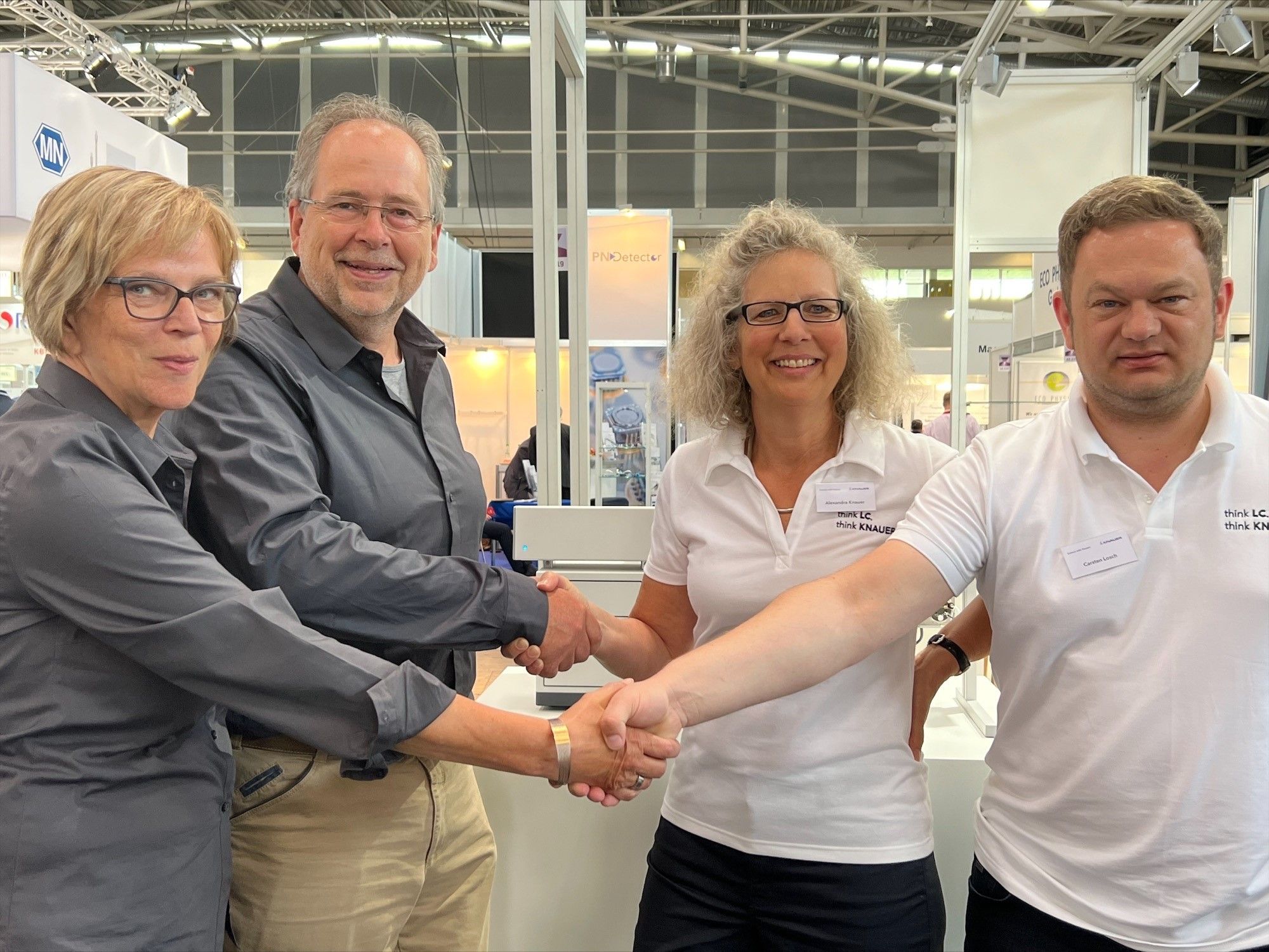Knauer Announces ModuVision Acquisition
Knauer Wissenschaftliche Geräte (Berlin, Germany) has announced the acquisition of ModuVision BV, an automation focused company based in Vlissingen, the Netherlands.

“We look forward to cooperating very closely with the experts from ModuVision. This acquisition fits very well to our strategy,” said Alexandra Knauer and Carsten Losch, CEO’s of Knauer.
ModuVision BV will continue to exist as an affiliate of Knauer. All contracts with employees, suppliers, and partners will remain valid. ModuVision will continue to serve customers in the field of GC and LC.
“We welcome the partnership with Knauer very much and we expect a great benefit for both companies,” said Jan Willem Mol, ModuVision CEO.
For more information, please visit:
www.knauer.net

HPLC 2025 Preview: Fundamentally Speaking (Part 1)
May 13th 2025Michael Lämmerhofer from the Institute of Pharmaceutical Sciences, University of Tübingen, Germany, spoke to JFK Huber Lecture Award winner of 2024 Torgny Fornstedt, professor in analytical chemistry and leader of the Fundamental Separation Science Group, Karlstad University, Sweden, about his pioneering work in high performance liquid chromatography (HPLC) with a focus on fundamentals and industrial applications.
Reversed-Phases for LC Deliberately Doped with Positive Charge: Tips and Tricks for Effective Use
May 13th 2025In this month's edition of LC Troubleshooting, Dwight Stoll and his fellow researchers discuss both the benefits (improved peak shape/loading) and challenges (excessive interaction) associated with charge-doped reversed-phase (RP) columns for both analytical and preparative separations.
Determining Ways to Protect Honeybee Colonies with GC–MS
May 13th 2025A study conducted by the Agriculture Research Centre of Giza, Egypt, and Jilin Agricultural University in China, evaluated the efficacy of stinging nettle extract, nettle smoke, and formic acid in the controlling of Varroa mites, a major threat to honeybee colonies, with a focus on mite infestation reduction, honeybee mortality, and biochemical responses. Gas chromatography–mass spectrometry (GC–MS) was used to identify key bioactive compounds in the stinging nettle extract.

.png&w=3840&q=75)

.png&w=3840&q=75)



.png&w=3840&q=75)



.png&w=3840&q=75)
















